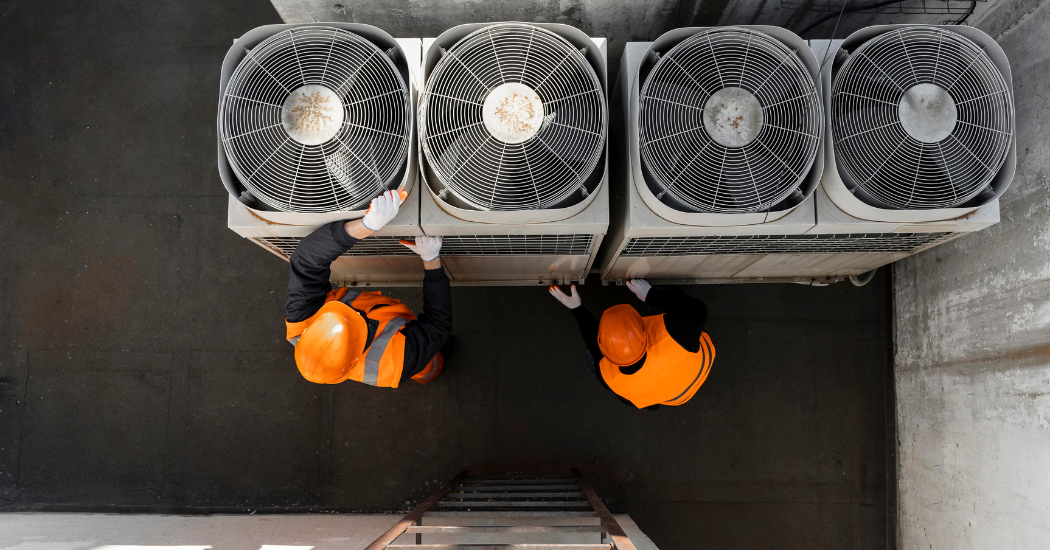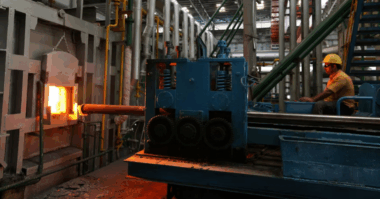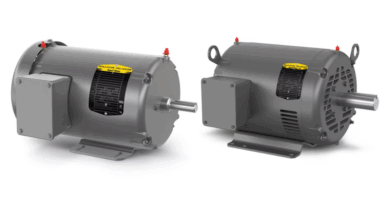The HVAC system is a valuable investment that requires proper care and attention. Neglecting regular maintenance can shorten the system’s lifespan and result in higher energy bills, while proactive upkeep ensures optimal performance and efficient operation. Given its critical role in maintaining a comfortable indoor environment, investing in the regular maintenance of your HVAC system is a prudent decision.
The last few years have brought to light the crucial significance of indoor air quality in residential, manufacturing, and commercial buildings alike. The amplified impact of climate change, complemented by governmental regulations, has hastened the need for energy-efficient HVAC systems that can facilitate ambitious sustainability objectives while mitigating energy expenses.
This article covers seven common HVAC problems that you can avoid with regular maintenance. For the issues mentioned below, ASHRAE (American Society of Heating, Refrigerating and Air-Conditioning Engineers) has developed a standard HVAC service life and maintenance cost database that may further help with developing your maintenance management plan.
#1: Dirty air filters
Dirty air filters cause a range of problems — reduced airflow, increased energy consumption, and poor indoor air quality. In manufacturing plants, where the air is filled with contaminants such as dust, dirt, and particulates, dirty filters clog more quickly and lead to severe issues.
To prevent these issues, it’s important to schedule regular filter replacements. The frequency of replacements depends on the type of filter and your specific facility, but a good rule of thumb is to replace filters at least every three months.
Manufacturing plants may require more frequent replacements due to the higher levels of contaminants in the air. By keeping your air filters clean, you can improve both the indoor air quality and the energy efficiency of your HVAC system while extending its lifespan.
#2: Leaky ductwork
Leaky ductwork can cause your HVAC system to lose efficiency and make it more difficult to maintain comfortable temperatures. Additionally, the leaks lead to poor indoor air quality, which causes health problems for workers and potentially damages products and equipment. They result in higher energy consumption and increased costs as well.
To avoid these issues, it’s crucial to have your ductwork inspected regularly by a professional technician. They can identify any leaks and recommend repairs or replacements as necessary. By addressing any leaks promptly, you improve your facility’s indoor air quality, reduce energy costs, and prolong the lifespan of your HVAC system.
#3: Refrigerant leaks
Refrigerant leaks can cause air conditioning systems to malfunction and reduce their efficiency. These leaks are often caused by damaged or corroded refrigerant lines, faulty valves, or loose connections.
When refrigerant levels decrease, the HVAC system has to work harder to maintain the desired temperature, leading to increased energy bills and wear and tear on the equipment. Furthermore, refrigerant leaks can result in costly repairs and equipment damage.
To avoid these problems, it’s important to schedule regular maintenance visits with a professional technician. They can check refrigerant levels and early identify any leaks — prolonging the lifespan of HVAC system and preventing costly repairs.
#4: Electrical issues
Electrical problems occur due to faulty wiring, loose connections, or damaged electrical components. They can cause the HVAC system to malfunction or even pose a safety hazard.
Regular maintenance includes inspecting and testing the electrical components to detect any issues and ensure they are functioning correctly. Using Computer-Aided Facility Management Software helps you track when OEM’s recommended inspections are due and ensure that they are done on time. By staying on top of maintenance, you ensure the safety and efficiency of your HVAC system.
#5: Dirty condenser coils
The coils in an HVAC system play a crucial role in the transfer of heat and cooling between indoor and outdoor units. However, dirty coils can have a detrimental impact on the system’s efficiency, leading to higher energy bills and increased wear and tear. Additionally, dirty coils can negatively affect indoor air quality and even pose health risks.
In manufacturing plants, where the air contains more dust and debris, coils tend to get dirty more quickly and can cause severe issues if not addressed promptly. To prevent these problems, it’s important to schedule regular coil cleanings by a professional technician who can effectively remove accumulated debris and dirt.
#6: Clogged drains
Condensation produced by air conditioning systems needs to be properly drained to prevent water damage and mold growth. Clogged drains can cause the water to back up into the air conditioning unit, leading to inefficiencies, mold growth, and costly asset repairs.
In manufacturing plants, where there is often more condensation and moisture in the air, drains can become clogged quickly, causing severe problems.
To avoid these issues, it’s crucial to schedule regular drain cleanings with a professional technician. They will clear out any clogs and ensure that your drains are functioning correctly. This preventive maintenance will help prolong the life of your HVAC system, minimize downtime, and reduce the risk of costly repairs.
#7: Thermostat malfunction
The thermostat is the control center of the HVAC system that regulates the temperature and activates the heating or cooling function. Malfunctioning thermostats cause the HVAC system tooperate poorly or fail to reach the desired temperature. This can happen due to a variety of reasons, such as faulty wiring, dead batteries, or the accumulation of dust and debris on the thermostat’s sensors.
Regular maintenance tasks, such as replacing batteries and cleaning the thermostat, can help ensure that it functions properly. In harsh environments such as manufacturing plants, where dust and debris are prevalent, it’s especially important to clean the thermostat regularly to prevent sensor interference. Additionally, technicians can check and calibrate the thermostat during maintenance visits to ensure optimal system performance.
Prioritize maintenance to avoid issues
Regular maintenance is essential to avoid common HVAC problems and ensure optimal efficiency, safety, and indoor air quality. It includes inspecting, testing, and cleaning the HVAC system’s components to detect any issues and prevent malfunctions. Moreover, regular maintenance can also help you save money on energy bills and avoid costly repairs or replacements.
Bryan Christiansen is the founder and CEO of Limble CMMS. Limble is a modern, easy-to-use mobile CMMS software that takes the stress and chaos out of maintenance by helping managers organize, automate, and streamline their maintenance operations.




